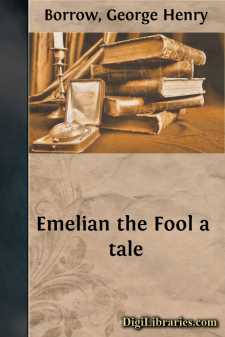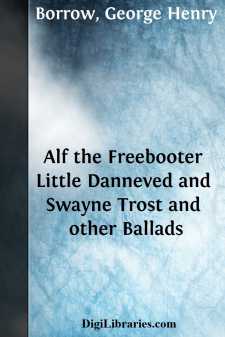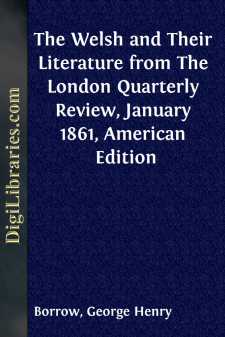Categories
- Antiques & Collectibles 13
- Architecture 36
- Art 48
- Bibles 22
- Biography & Autobiography 813
- Body, Mind & Spirit 138
- Business & Economics 28
- Children's Books 12
- Children's Fiction 9
- Computers 4
- Cooking 94
- Crafts & Hobbies 4
- Drama 346
- Education 46
- Family & Relationships 57
- Fiction 11821
- Games 19
- Gardening 17
- Health & Fitness 34
- History 1377
- House & Home 1
- Humor 147
- Juvenile Fiction 1873
- Juvenile Nonfiction 202
- Language Arts & Disciplines 88
- Law 16
- Literary Collections 686
- Literary Criticism 179
- Mathematics 13
- Medical 41
- Music 40
- Nature 179
- Non-Classifiable 1768
- Performing Arts 7
- Periodicals 1453
- Philosophy 64
- Photography 2
- Poetry 896
- Political Science 203
- Psychology 42
- Reference 154
- Religion 505
- Science 126
- Self-Help 81
- Social Science 81
- Sports & Recreation 34
- Study Aids 3
- Technology & Engineering 59
- Transportation 23
- Travel 463
- True Crime 29
Letters of George Borrow to the British and Foreign Bible Society
Categories:
Description:
Excerpt
To the Rev. J. Jowett
Willow Lane, St. Giles, Norwich,
Feb. 10th, 1833.
Revd. and dear Sir,—I have just received your communication, and notwithstanding it is Sunday morning, and the bells with their loud and clear voices are calling me to church, I have sat down to answer it by return of post. It is scarcely necessary for me to say that I was rejoiced to see the Chrestomathie Mandchou, which will be of no slight assistance in learning the Tartar dialect, on which ever since I left London I have been almost incessantly occupied. It is, then, your opinion, that from the lack of anything in the form of Grammar I have scarcely made any progress towards the attainment of Mandchou; perhaps you will not be perfectly miserable at being informed that you were never more mistaken in your life. I can already, with the assistance of Amyot, translate Mandchou with no great difficulty, and am perfectly qualified to write a critique on the version of St. Matthew’s Gospel, which I brought with me into the country. Upon the whole, I consider the translation a good one, but I cannot help thinking that the author has been frequently too paraphrastical, and that in various places he must be utterly unintelligible to the Mandchous from having unnecessarily made use of words which are not Mandchou, and with which the Tartars cannot be acquainted.
What must they think, for example, on coming to the sentence . . . apkai etchin ni porofiyat, i.e. the prophet of the Lord of heaven? For the last word in the Mandchou quotation being a modification of a Greek word, with no marginal explanation, renders the whole dark to a Tartar. Τον ’Ιησουν γινωσκω και τον Παυλον επïσταμαι συ δε τïς ει; apkai I know, and etchin I know, but what is porofiyat, he will say. Now in Tartar, there are words synonymous with our seer, diviner, or foreteller, and I feel disposed to be angry with the translator for not having used one of these words in preference to modifying προφητης; and it is certainly unpardonable of him to have Tartarized αyyελος into . . . anguel, when in Tartar there is a word equal to our messenger, which is the literal translation of αyyελος. But I will have done with finding fault, and proceed to the more agreeable task of answering your letter.
My brother’s address is as follows:
Don Juan Borrow,
Compagnia Anglo Mexicana,
Guanajuato, Mexico.
When you write to him, the letter must be put in post before the third Wednesday of the month, on which day the Mexican letter-packet is made up. I suppose it is unnecessary to inform you that the outward postage of all foreign letters must be paid at the office, but I wish you particularly to be aware that it will be absolutely necessary to let my brother know in what dialect of the Mexican this translation is made, in order that he may transmit it to the proper quarter, for within the short distance of twenty miles of the place where he resides there are no less than six dialects spoken, which differ more from each other than the German does from the English. I intend to write to him next Thursday, and if you will favour me with an answer on this very important point, by return of post, I shall feel obliged....












